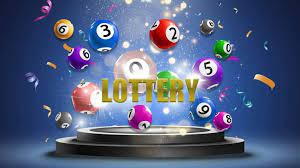Lotteries have fascinated players for centuries due to the promise of potentially life-changing prizes. In essence, lotteries are simple games of chance where participants purchase tickets for the chance of winning a prize. The procedure usually involves drawing numbers randomly with the winner’s combination making the prize winners. But, the world of Lottery Guide is more intricate than what may appear at first.
Types of Lotteries:
There are a variety of lotteries, such as traditional draw-based lotteries, scratch-off games, and lotteries that are online. Traditional draw-based lotteries like Powerball and Mega Millions, involve selecting a set of numbers and comparing them to those drawn in the lottery. Scratch-off games give instant results, by scratching a layer of the ticket to reveal the numbers or symbols that determine the winnings. Lotteries online that have grown in popularity in recent times and allow players to play from anywhere using digital platforms.
How to Play:
Playing the lottery generally involves purchasing a lottery ticket and choosing numbers, or random numbers. In some lotteries, players have the option of choosing themselves their numbers while other lotteries use a quick-pick mechanism that generates random numbers. Tickets must be purchased prior to the draw takes place and participants should keep them safe as they will be required to claim any prize.
Odds and Prizes:
Understanding the probability of winning is crucial for all lottery players. It is determined by amount of possible number combinations and the specific rules of the lottery. For instance, lotteries with bigger jackpots typically have higher odds, making the chances of winning lower. Despite the small chances of winning, the appeal of large jackpots keep many people participating. Prizes range from tiny amounts to life-changing sums, and certain lotteries also offer cash prizes for matching numbers with fewer.
Legal and Financial Aspects of Lotteries
Legal Considerations:
The legality of lotteries is a matter of debate by country and region. In many places, lotteries are regulated by government authorities to guarantee transparency and fairness. It is important to be aware of local rules and regulations and only take part in lotteries that are legal. In certain countries, illegal lotteries are deemed illegal and could be punished with legal penalties.
Tax Implications:
Lottery winnings are usually tax-free. Tax rates and regulations vary based on the jurisdiction and the prize. In certain instances winners will need to declare their winnings and pay taxes on their prizes. It’s advisable for winners to talk to a financial advisor or tax professional to understand their tax obligations and to plan in advance.
Responsible Gambling:
Participating in lotteries should be conducted in a responsible manner. While the potential for winning big prizes is exciting, it’s essential to play within one’s means. A budgeting process of lottery ticket prices and using them as a source of entertainment rather than an investment can help manage expectations and avoid financial strain.
Conclusion:
Lottery Guide (แนวทางหวย) are a great way for those who participate to win huge prizes, but understanding the different types of lotteries as well as their odds, legal implications, and financial aspects are essential for informed participation. By being knowledgeable and playing responsibly, individuals can enjoy the excitement of lotteries, while taking care to minimize the risk.


